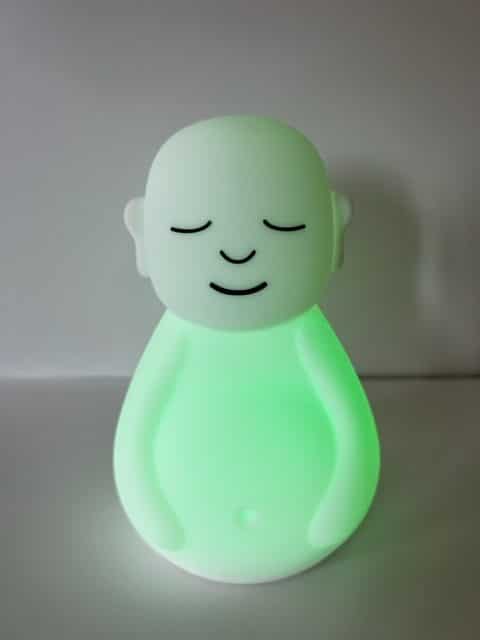
The following is a contributed post from Austin Davis LPC-S, founder and CEO of Clearfork Academy.
We all know the feeling before an important test or sports game when we want to do well, or if a bear crosses our path on a walk in the forest—that’s anxiety. It’s an important emotion, signaling through worry, fearfulness, and alarm that danger or a sudden, threatening change is near.
Feeling anxious is part of the normal range of emotions, just like feeling angry or embarrassed. And for most adolescents, it goes away on its own.
The Statistics Tell the Story
The National Institute of Mental Health reported in 2024 that an estimated 31.9% of adolescents had anxiety of some type. And, according to the CDC, between 2016-19 nearly 10% (approximately 5.8 million) of teenagers aged 12-17 experienced something more intense, exaggerated, and prolonged—an anxiety disorder. Going back some time these numbers have been rising steadily; between 2007 and 2012, anxiety disorders in children and teens went up 20%.
This is different from normal anxiety and can be quite debilitating for a teen. It may interfere with maintaining friendships, school, and academic performance, participation in extracurricular activities, or positive family relationships. And it can range from a free-floating feeling of uneasiness to panic attacks and phobias.
How Does Anxiety Affect Teenagers?
Your teen may experience a range of symptoms and feelings including the following:
Physical symptoms: These may include sleep problems, rapid heartbeat, muscle tension or cramps, stomachaches, headaches, back or leg pain, and fatigue. Additionally, their faces may flush frequently or they may sweat abnormally, hyperventilate, or startle easily.
Emotional impact: These may include constant worry or fears, feeling irritable/nervous, feeling restless, wound-up, on edge, difficulty concentrating, and/or mind going blank, interference with daily activities and relationships.
What Can A Teenager With Anxiety Do To Control it?
Here are six ways to help an anxious teen (with support from their parents):
1. Try a “Can-do” attitude
When we are anxious we often may have a fixed mindset. With a fixed mindset, you’ll think things are the way they are, and can’t be changed. But we can teach our brains new ways to respond— with effort and practice. And this can include reducing anxiety. But it does require trying, even with a small step.
2. Observe how anxiety affects your body
When we’re anxious, we often feel “butterflies” in our stomachs and some of the other symptoms listed above. These physical feelings are part of our natural “fight or flight” response to stress. They are uncomfortable but manageable. Just feel them, notice them, and then let them be in the background.
3. Practice deep breathing
If you feel anxious, take a few slow breaths. Be sure to breathe out slowly all the way for the count of five. Then breathe in all the way and out slowly again counting to five. This breathing exercise can slow the release of stress hormones and help you feel more relaxed. Focusing on your breathing helps you pay less attention to anxious thoughts and feelings.
4. Talk your way through
Talk yourself through it with positive self-talk. When you’re anxious, instead of saying why you can’t do something, tell yourself something that can help you face your fears such as, “It’s OK to feel anxious. I can do this anyway.”
5. Grounding exercise
This meditation exercise reduces anxiety by allowing you to focus your attention in the present. By focusing on what can be controlled at the moment, you may feel you have more control over your emotions, reducing the out-of-control feelings that anxiety brings. Try the 5-4-3-2-1 grounding method, looking for five things you can see, four things you can touch, three things you can hear, two things you can smell, and one thing you can taste.
6. Face the situation—don’t wait for anxiety to go away
Instead of putting off an activity or saying hi to a new person, until you no longer feel anxious about it, facing the anxiety helps you lower it.
Related: Every Parent of Teens Needs to Watch “Anxious Nation” Documentary
5 Coping Skills For Teens With Anxiety
This list of coping skills can be learned and used by teens with non-judgmental parental support:
1. Seek support from friends, family, or support groups
Just talking things over with someone a teen trusts can go a long way to helping them receive validation and gain understanding that it’s okay to feel anxious and we can do something about it.
2. Journal to express feelings and track triggers
Keeping a private journal can be a powerful way for a teen to track what triggers their feelings of anxiety. This then gives them a tool they have created to reflect on triggering situations or events and practice some of the anxiety management techniques listed above.
3. Do a favorite physical activity
Not only is it something your teen likes to do, but it gets them breathing more deeply, which can lower anxious feelings and distress.
4. Stay healthy
Following a healthy lifestyle with a well-balanced diet and enough sleep can go a long way to minimizing anxiety.
5. Manage unhelpful thoughts
One of the most useful anxiety coping mechanisms for teens is identifying and managing negative or unhelpful thoughts also called thought distortions. These thoughts convince the mind that something is wrong, even when the opposite is true. The most common unhelpful thoughts that anxious teens may experience include all-or-nothing thinking, personalizing, and catastrophizing. Identifying these thought patterns is the first step in redirecting them to more positive thoughts.
Related: Why Your Teen May Have Anxiety
When To Look for Professional Help
If any of the following conditions apply to your teen, it’s time to immediately consult a licensed mental health professional:
- If the above self-help methods don’t bring sufficient improvement and the symptoms maintain or worsen in your teen
- If there is a continued negative Impact on your teen’s school performance
- If there is no improvement in your teen’s social life
- If your teen has thoughts of self-harm or suicide, or has made a plan to do so
Does your teen need a little extra help with mindfulness and breathing exercises?
We recommend the Breathing Buddha—a guided visual meditation tool for mindfulness. The Breathing Buddha can help your teen slow their breathing and calm their mind as they learn to cope with and control anxious thoughts.

Parenting teens is a tough job, but you’re not alone. These posts might help:
A Psychotherapist Shares 6 Rules She Follows When Parenting Teens
Overstimulation May Be Causing Your Teen’s Difficult Behavior
Puberty Hit and Suddenly My Son’s Volatile Moods Took Over
Why Self-Care Is One Of The Most Important Lessons We Can Teach Our Teens
*This post may contain affiliate links where we earn a small commission for purchases made from our site.






Leave a Comment